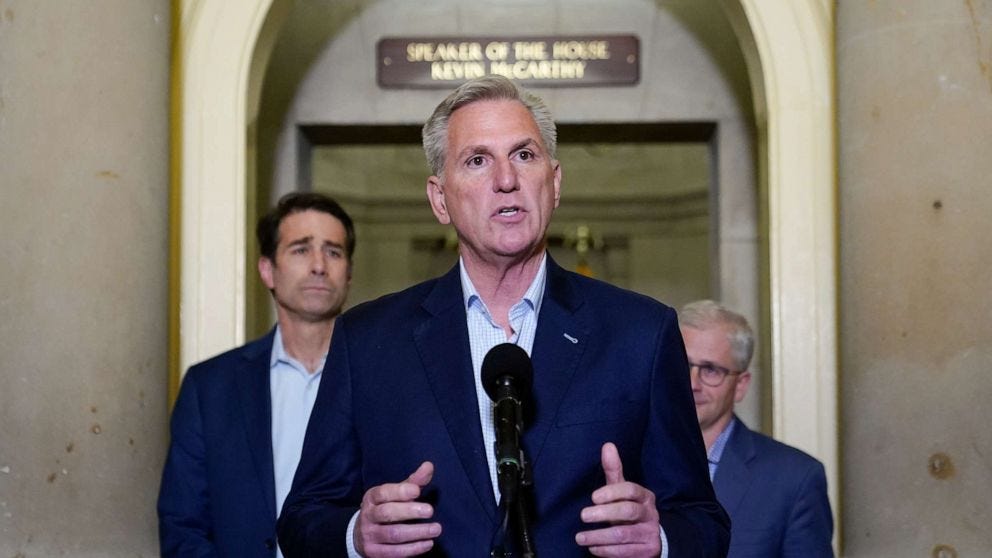Biden, McCarthy reach a deal to avoid a first-ever default
The agreement suspends the debt limit through next year’s election and outlines funding priorities for the same timeframe. Now congressional leaders have to secure the votes to pass it into law.

President Joe Biden and House Speaker Kevin McCarthy on Saturday evening reached a tentative agreement to suspend the debt limit after House Republicans refused for months to increase the nation’s borrowing limit without preconditions as they did three times under the Trump administration.
The agreement allows lawmakers to send a bill to the president’s desk to be signed into law before the US government is forced to default on its debt. This unprecedented event would destabilize the global economy and cause needless suffering at home.
Barring an eleventh-hour breakdown, the deal includes a two-year suspension of the debt limit through the 2024 election in exchange for a two-year cap on domestic funding unadjusted for inflation next year with a one-percent increase in 2025. Funding for the military and veterans’ programs will increase by three percent, which meets President Biden’s request in his budget proposal.
But the agreement burdens childless people under age 54 with new work requirements that limit the number of months they can receive SNAP benefits within a defined period, up from 49 years old. There are protections for unhoused people and veterans and the time limits are expected to sunset in 2030.
Still, this will be a major disappointment for some progressive Democrats who pressed the White House to reject any new work requirements. There are no new requirements for Medicaid recipients though, which is a win for the White House and Democrats.
Additionally, the deal rescinds almost $2 billion in IRS funding, another Republican priority. But the money will be reinvested in domestic programs that would have seen cuts due to the funding cap. Several billions of dollars in unspent COVID-19 money are also expected to be recouped in the agreement.
Plus, it expedites the review of permits for energy projects, although the details on these provisions are unclear at press time.
“The agreement represents a compromise, which means not everyone gets what they want,” President Biden said in a statement while touting that the deal protected the major legislation congressional Democrats passed in the first two years of his term. “That’s the responsibility of governing.”
Biden and McCarthy spoke twice on Saturday, including a 90-minute chat before the deal was announced. The calls were to iron out a set of nagging provisions negotiators for both leaders were unable to resolve during a series of around-the-clock meetings over the past several days.
The president also spoke with Senate Democratic Leader Chuck Schumer and House Democratic Leader Hakeem Jeffries, who will be expected to deliver dozens of votes to offset defections from the far-right flank of the House Republican Conference.
As in most high-stakes congressional negotiations, reaching an agreement is the first major hurdle of many.
Keep reading with a 7-day free trial
Subscribe to Supercreator to keep reading this post and get 7 days of free access to the full post archives.

